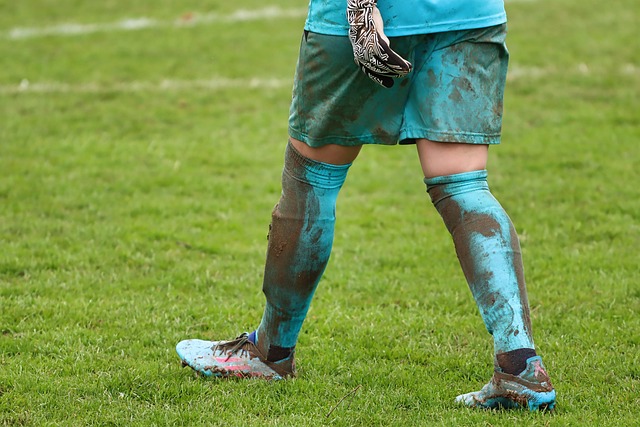The Oregon Ducks softball team achieves success in women's college softball through a holistic coaching approach that combines athletic excellence and strategic acumen. They focus on individual player development, setting clear goals, and providing personalized guidance to enhance skills like batting, pitching, and mental toughness. By fostering open communication, tailored training, and continuous learning, the Ducks create a supportive environment where every player contributes to collective success both on and off the field. This individualized coaching strategy equips athletes with the tools needed to excel in competitive women's college softball.
The women’s college softball scene is a dynamic and competitive environment that requires tailored coaching strategies for optimal performance. This article explores the unique aspects of coaching the Ducks softball team, delving into effective methods to enhance team dynamics. From setting ambitious yet achievable goals to individualised training, we uncover strategies that foster mental toughness and build a supportive learning culture. Discover how these techniques contribute to the success and development of women’s college softball athletes.
- Understanding the Unique Dynamics of Women's College Softball
- Setting Clear Goals and Expectations for the Team
- Individualized Coaching Approaches for Peak Performance
- Incorporating Drills and Scrimmages to Sharpen Skills
- Building Mental Toughness and Resilience on and Off the Field
- Fostering a Culture of Support, Communication, and Continuous Learning
Understanding the Unique Dynamics of Women's College Softball

In the vibrant world of women’s college softball, understanding the unique dynamics is crucial for any coach aiming to develop a successful program. This fast-paced and highly competitive sport demands not just athletic prowess but also strategic thinking and a deep appreciation for team dynamics. The Ducks softball team navigates this landscape by fostering an environment that emphasizes both individual skill development and collective camaraderie.
Coaching strategies within women’s college softball often revolve around building strong communication lines, encouraging mental toughness, and promoting a culture of continuous learning. The team’s approach includes regular team-building activities designed to strengthen bonds among players, which translates into better performance on the field. By recognizing and leveraging the diverse strengths and experiences of each player, the Ducks coaches create a symphony of talent that resonates both on and off the diamond.
Setting Clear Goals and Expectations for the Team

In coaching women’s college softball, setting clear goals and expectations is paramount for success on and off the field. The Ducks softball team establishes measurable objectives at the beginning of each season, focusing on both individual player development and team performance. These goals could include improving batting averages, refining pitching techniques, enhancing defensive coordination, and cultivating a culture of resilience and sportsmanship. By articulating these expectations clearly to the team, coaches create a shared vision that drives collective effort and motivation.
Furthermore, regular communication channels are maintained to ensure players understand their roles and responsibilities. This involves breaking down complex strategies into digestible components, providing constructive feedback, and offering tailored guidance to address individual strengths and weaknesses. Such an approach not only prepares the team for competitive games but also fosters a sense of accountability and ownership among the players, making them active participants in their journey towards peak performance in women’s college softball.
Individualized Coaching Approaches for Peak Performance

In the competitive landscape of women’s college softball, individualized coaching approaches are essential for unlocking each player’s full potential. The Ducks softball team recognizes that every athlete has unique strengths, weaknesses, and learning styles, necessitating tailored strategies to maximize performance. Coaches employ advanced scouting techniques to meticulously analyze opponents and adapt their gameplay accordingly, ensuring a dynamic and unpredictable approach.
By incorporating one-on-one sessions, they cater to individual needs, refining skills like hitting, pitching, or defensive positioning. This personalized touch fosters confidence and encourages players to embrace their roles, be it as power hitters or agile fielders. The result is a cohesive team where each member contributes significantly, demonstrating the team’s commitment to excellence in women’s college softball.
Incorporating Drills and Scrimmages to Sharpen Skills

In the dynamic world of women’s college softball, refining skills through targeted practice is paramount to achieving success on the field. Incorporating drills and scrimmages into coaching strategies offers a powerful approach to sharpen players’ abilities. Drills allow coaches to focus on specific aspects of the game, such as batting techniques, pitching precision, or defensive agility, providing individual attention to each player’s unique needs. By breaking down complex skills into manageable components, these structured exercises foster quicker learning and improvement.
Scrimmages simulate real-game scenarios, enabling players to apply their honed skills in a competitive yet controlled environment. This dynamic approach not only tests the athletes’ understanding of strategies but also enhances their ability to make split-second decisions under pressure. As coaches observe players during scrimmages, they gain valuable insights into each player’s strengths and areas for improvement, allowing for more personalized coaching and further refining of skills in preparation for competitive games.
Building Mental Toughness and Resilience on and Off the Field

In women’s college softball, building mental toughness and resilience is paramount for success on and off the field. Coaches play a crucial role in cultivating this mindset among their players by implementing strategic practices designed to challenge and strengthen their psychological fortitude. Through rigorous mental training sessions, players learn to confront and overcome adversity, fostering an unyielding determination that translates directly into improved performance during games.
On top of structured practice, the coaching staff integrates resilience-building exercises that extend beyond the playing surface. These activities aim to equip athletes with coping mechanisms for the inevitable pressures and setbacks they’ll face throughout their academic and athletic careers. By developing both mental toughness and resilience, Ducks softball players emerge as formidable forces, ready to navigate the rigors of competitive play with poise and perseverance.
Fostering a Culture of Support, Communication, and Continuous Learning

In the world of women’s college softball, fostering a supportive environment is key to unlocking each player’s full potential. The Ducks softball team understands that creating a culture where athletes feel empowered and encouraged is vital for success on and off the field. Coaches play a pivotal role in this by ensuring open communication channels are maintained, allowing players to voice their concerns, aspirations, and ideas freely. This inclusive approach nurtures a sense of belonging, encouraging athletes to take risks and learn from both triumphs and setbacks.
Continuous learning is another cornerstone of the Ducks’ coaching philosophy. By emphasizing a growth mindset, coaches motivate their players to embrace challenges as opportunities for development. Through regular feedback sessions, team meetings focused on strategic analysis, and individual skill-specific training, athletes are empowered to identify areas for improvement. This continuous learning process not only enhances performance but also fosters mental resilience, equipping Ducks softball players with the tools necessary to excel in a highly competitive environment.






